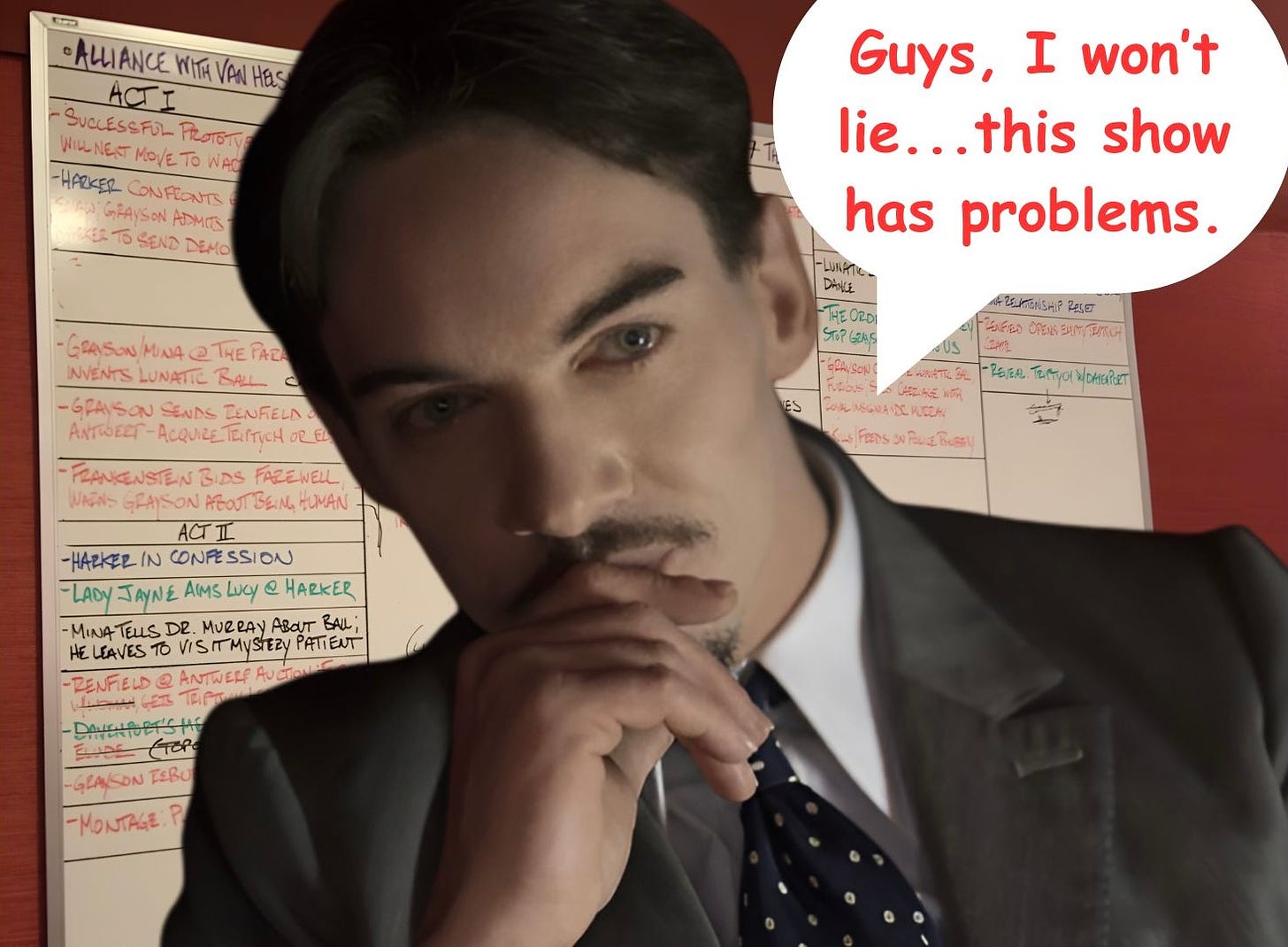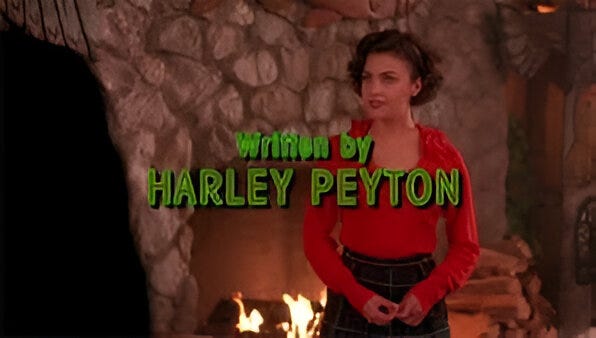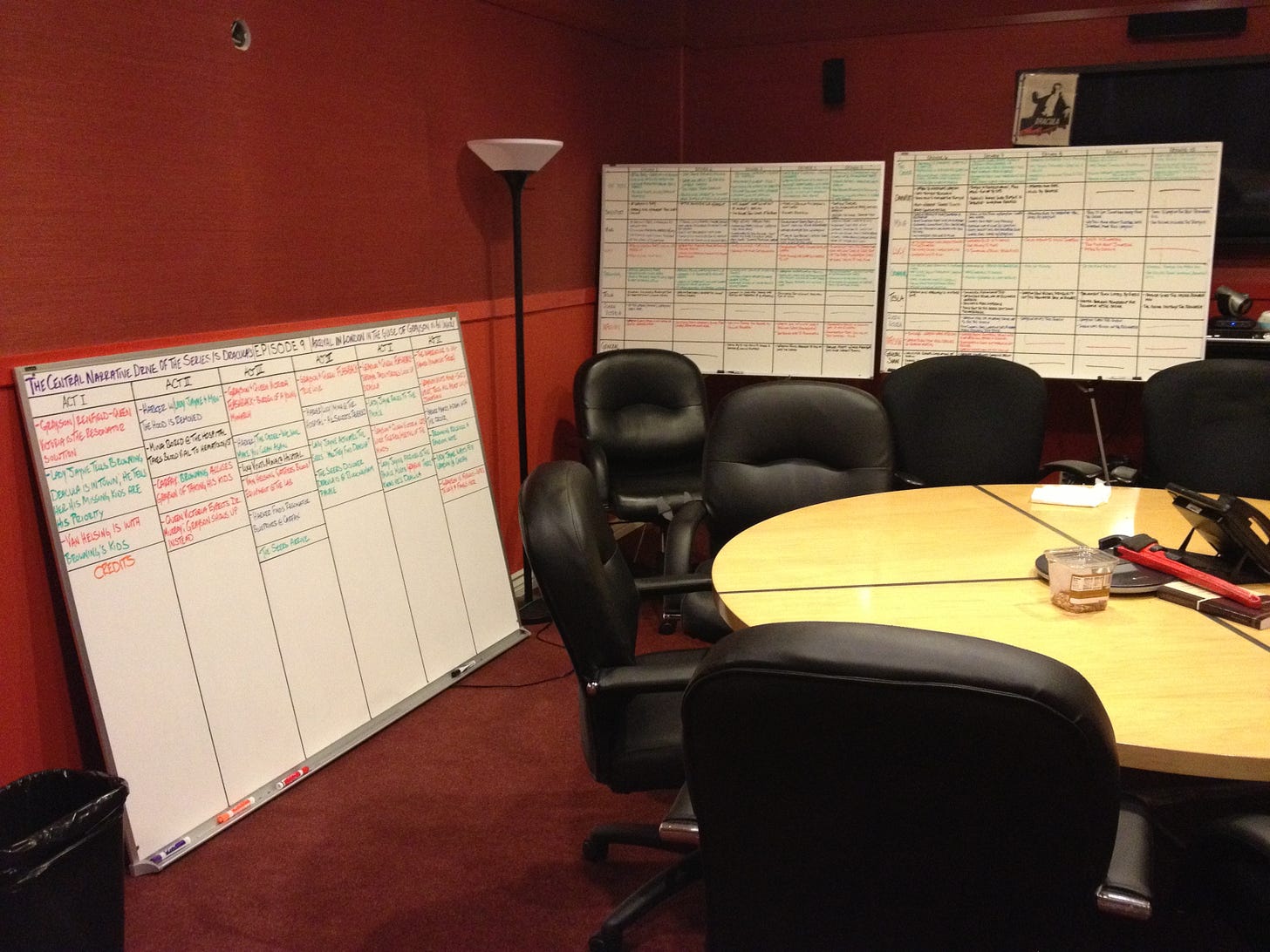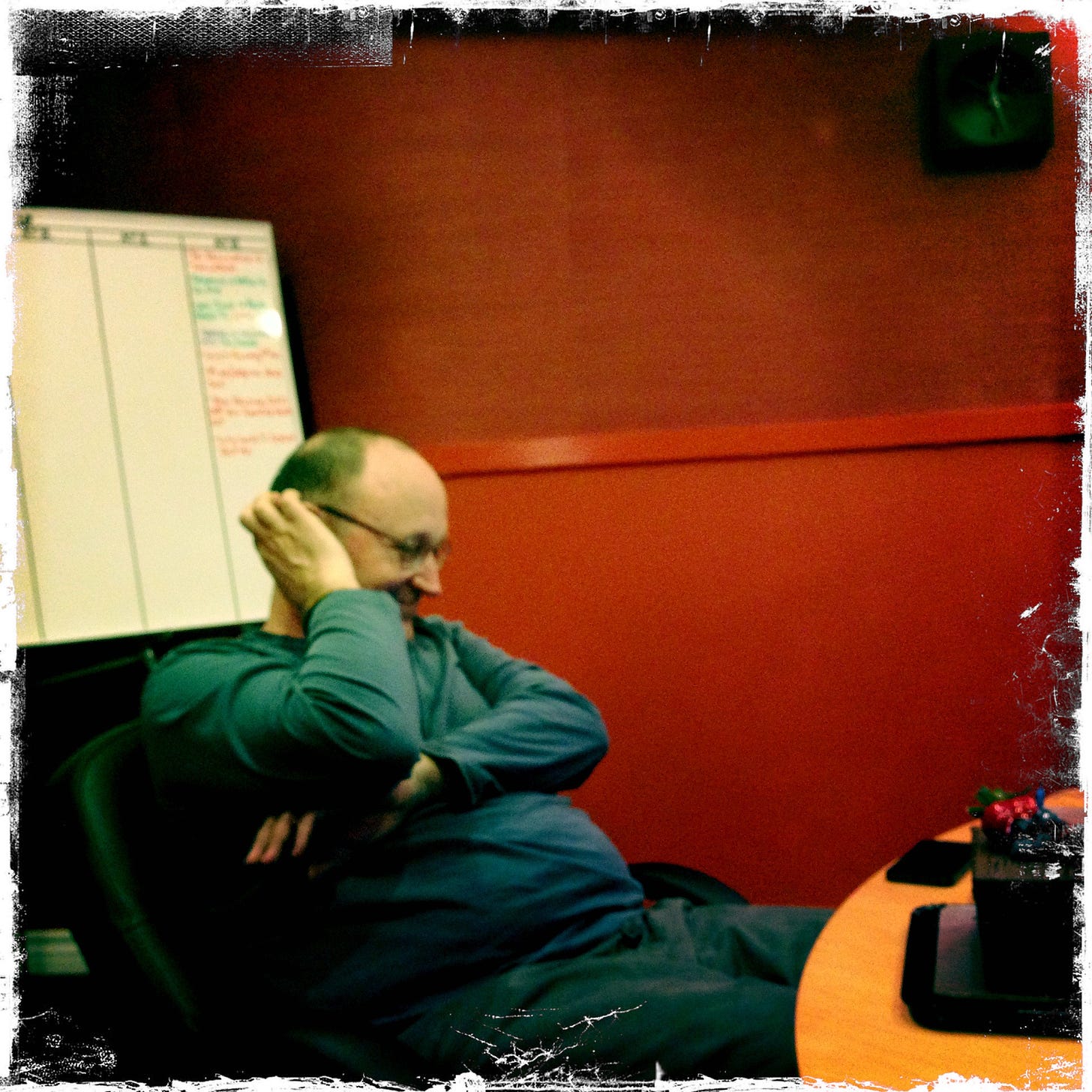Looking Back at the Soul-Sucking Shitshow That Was ‘Dracula’ (2013) with Series Co-EP Harley Peyton
On the tenth anniversary of the series' premiere, my friend and I discuss everything that went wrong - and there was so very much that did
This article is part of 5AM StoryTalk’s monthly celebration of the complete and utter shitshow that was 'DRACULA' (2013) on its 10th anniversary. The TV series, which I created for NBC and Sky, remains the most painful creative experience of my career because of elements within the production, the most prominent of which I refer to as Mr. Smiley in anything I write on the subject. You can read more about this in ‘The Horror of 'DRACULA': The Unbelievable True Story of the 2013 TV Series’.
When I was told Harley Peyton was coming in to meet with me and the other producers of “DRACULA” to discuss him joining its writers’ room, I tried to act cool, but inside I was screaming with excitement. If you’re a fan of “TWIN PEAKS”, you almost certainly know his name as it was regularly splashed across your TV screens in an almost supernatural green throughout much of the series’ two-season run. The possibility of him helping bring my series to the screen was immensely exciting. Little did I realize that I was about to meet one of my dearest friends - not to mention one of the only reasons I managed to survive “DRACULA” at all.
Harley did indeed join the “DRACULA” writers’ room as a Co-EP, as much because he is a brilliant writer as he was more experienced than everyone else present at writing and producing TV. He’d been at it for two decades already, by this point, earning an Emmy nomination while doing it. If that weren’t impressive enough, he had several films produced along the way, amongst them LESS THAN ZERO (1987) and BANDITS (2001). It’s fair to say that his presence was meant to buoy the show if things got out of hand.
And things did.
Way out of hand.
By Day 2 of the writers’ room, I sent Harley a frantic text at 7:30AM. Can we talk? When he got on the phone with me, I told him I needed his help to save my TV series from its own head writer (not me) and the infamous Mr. Smiley. It was a bold move — rather, a desperate one — because I had no idea if I could trust him. But I didn’t know what other choice I had.
Harley’s response? He told me he had my back - and that hasn’t changed from that moment to today.
Ten years after “DRACULA’s” premiere, I asked my friend if he was up for interviewing me about the experience and vice versa. I thought it might give us both a chance to reflect on what happened and maybe provide aspiring and emerging screenwriters some valuable insight about the miserable, self-destructive intrigue that can consume a TV series in crisis. The result is a brutally honest and harrowing accounting of what happened and what I, in particular, endured during “DRACULA’s” production.
There’s so much for aspiring and emerging screenwriters to learn from this post-mortem conversation (hell, even I learned a few new things from it). I hope our interrogation of what went down helps you in some way.
HARLEY PEYTON: When it all began, after the development process, after the greenlight to series, on that first day…what were your expectations for the series? What was the dream scenario that you envisioned? Assuming you had one. I know I always do.
COLE HADDON: I think it’s fair to say my expectations were extremely low compared to my hopes for what would happen. Remember, I had never been in a writers’ room before. I’d dreamed of this moment for a very long time, but, being completely honest, I think I already hated what the series had become. Not necessarily the story, but its potential. Mr. Smiley, as we’ll continue to call him, had left me in such a state I was already medicating just to get enough sleep to show up every day. The search for a showrunner hadn’t gone the way I hoped it would, leading to a creative partner on the project I found the antithesis of how I think, work, even look at the world. There was zero sense anything would come from the writers’ room that wouldn’t be as disappointing or even more so.
Of course, I hoped it would go differently. That was the dream scenario, if there was one beyond “don’t give up on everything and just walk into traffic”. I am naïve to an almost comical degree in this regard, always convinced things will magically change tomorrow. Maybe the head writer would turn out to be the ally I needed him to be, the studio would come to the rescue, Jonathan Rhys Meyers would get some whiff of what was happening and demand that heads roll. You know, that sort of thing. Can you recall your impression of me when we met? How green did I seem to you?
HP: Well. This all started with a phone call out of the blue from Mr. Smiley – my agent many years before. In the interim, Smiley had crafted a reputation for almost comical levels of dishonesty and self-interest and I was aware of the latter when I took the call. But the offer he made, a chance to join the room of the Dracula show he was producing, was more than tempting. And after I read your script and show bible, I was even more eager to join. Naturally, Smiley didn’t mention you much. It’s like the series was magically crafted out of his own good taste.
CH: That’s no surprise.
HP: I remember meeting you and the showrunner — soon to be demoted to “head writer” — when hopes were high. And with Smiley largely absent, it felt like the creatives, the writers, would take it from there. And your show would return to safer saner hands. I was, of course, entirely wrong about that.
CH: Tragically so.
HP: Once launched, once in the thick of it…was there a moment when you realized things might go in a different direction than you imagined or dreamed? And how did that change your approach moving forward?
CH: Yeah, Day 1 of the writers’ room.






